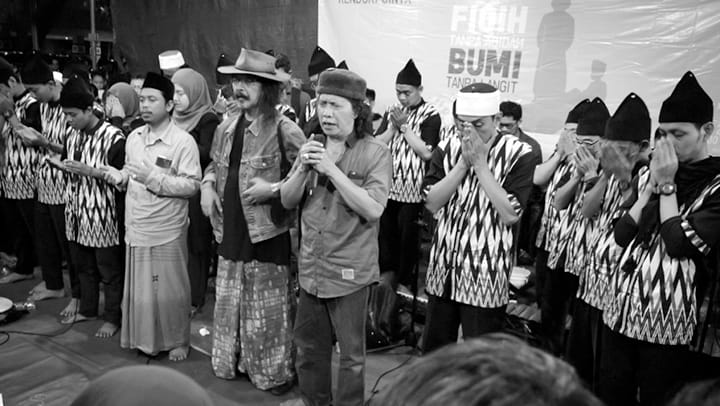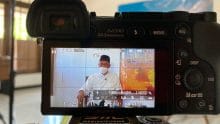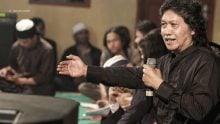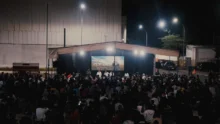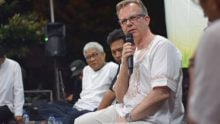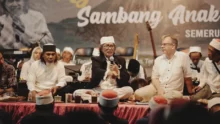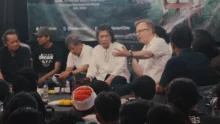20th Anniversary Padhang mBulan
Dear Jamaah Maiyah,
These are my notes from Padhang mBulan on Saturday, 19 October 2013, which marked the gathering’s twenty year anniversary as well as a year since the passing of Ibu Halimah, the mother of Cak Nun and Cak Fuad. Speakers that night included moderator Cak Yus, Cak Fuad, who both opened and closed the evening’s proceedings, Mas Khoirul Huda, the representative of Surabaya’s Bangbang Wetan, Rachmad, the representative of Jakarta’s Kenduri Cinta, Bang Mathar, the representative of Banyumas’ Juguran Syafaat, Titut Edi Purwanto, KH Muzammil of the Padhang mBulan Pesantren in Parangtritis, Yogyakarta, Kiai Marzuki Kurdi and Mustofa W. Hasyim of Nahdlatul Muhammadiyyin, Pak Tjuk, Sabrang, and, of course…Cak Nun. I delivered these notes in bahasa Indonesia, but it is better that they be recorded here in English.

Responses made after my comments were given included Cak Nun’s references to Kiai Kanjeng’s tour of the United Kingdom in 2005, when then-Chancellor of the Exchequer (later Prime Minister) Gordon Brown made a long and detailed speech in which he referred to the meaning and value of Kiai Kanjeng’s music and social advocacy. Sabrang also picked up a theme that we had discussed off-stage before the full proceedings began; that concerned global warming and the recent discovery that Indonesia would be the first country to experience its fullest effects in just short years from now. Mas Khoirul Huda also discussed the theme of Maiyah and “organisation”, which I had alluded to in my comments. In my own later responses to what others subsequently said, I referred to the “roots that had been planted and seeds sown” in the form of the valuable contributions that many other foreign nationals had made to the work of the Maiyah, both in Indonesia and overseas. All of those we can discuss here another time, but for now….
May peace by with you.
Twenty years of the Maiyah in the footsteps of the Prophet SAW, with Cak Nun, Cak Fuad and our other friends. Padhang mBulan; even after twenty years, the Maiyah that it bore has not become a party, a foundation, a formal organisation or even a “certain group”. Arguably, Padhang mBulan is too broad, too diverse for such restrictions. And perhaps Padhang mBulan does not need to become or to be turned into such a form. Is it not enough that we join, we follow and we gather, some might ask?
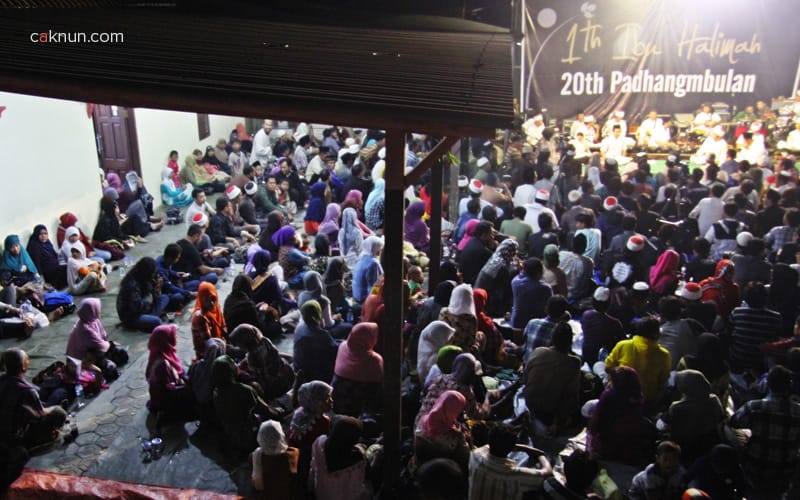
In a personal sense, Padhang mBulan reflects and gives context too the twenty years that I have spent in Indonesia since first hearing and being intrigued by the sound of “Tombo Ati” that I heard emanating from a village mosque in South Jakarta almost twenty years ago. My own role in the Maiyah movement has a number of dimensions. Besides the personal dimension, there is one of Islamic spirituality as well as an international dimension. In that international dimension I have on a number of occasions accompanied Cak Nun and Kiai Kanjeng on tours and events overseas. They include the following:
The Age “International Writers Festival”, Melbourne, Australia, 2006;
The Malay Cultural Conference “Budaya Negara Serumpun”, Kuala Lumpur, Malaysia, 2007;
Voices and Visions: An Indonesian Muslim poet sings a Multifaceted Society, with Emha Auni Nadjib & Kiai Kanjeng (seven-city tour of the Netherlands, 2008)
And other events….
It’s clear that as a foreign national, I might prioritise the potential and the role that Cak Nun, Kiai Kanjeng and the Maiyah movement could play overseas. That is a consequence of my own personal experience as a witness to the potential impact that their presence can have. It is that background as a “witness” that gave rise to the book “Jalan Sunyi Emha”…The Silent Path, which was written and published during 2005 and 2006.
God Willing, there will be other chapters in the path.
My experience with Cak Nun and Kiai Kanjeng meant that my intention in that book was to demonstrate that there was “another way”. Rather than conflict between different peoples, there is another way via the process of Maiyah. Rather than the confusion, despair and disappointment that can stem from socio-economic issues, there is another way that can be accessed through Maiyah.

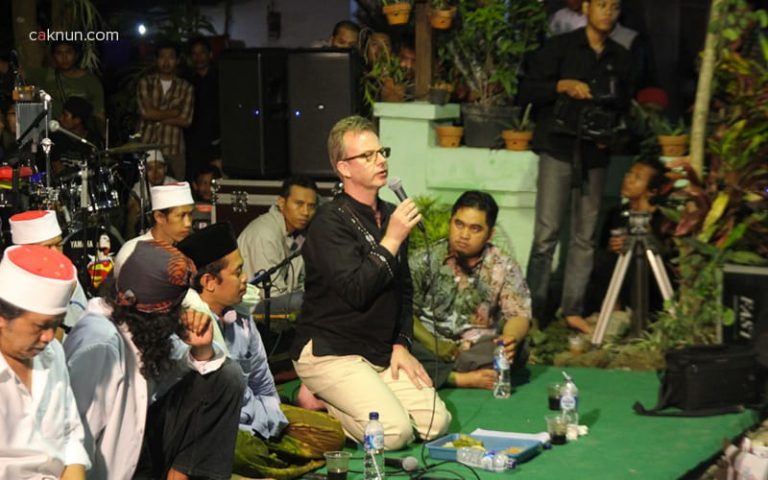
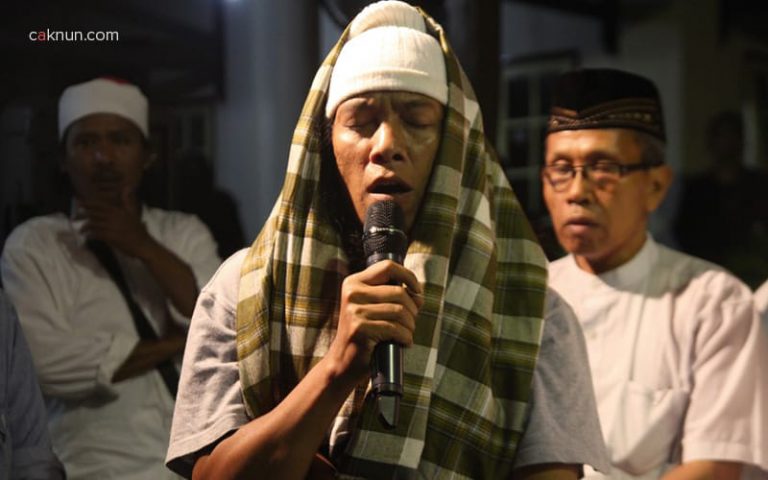
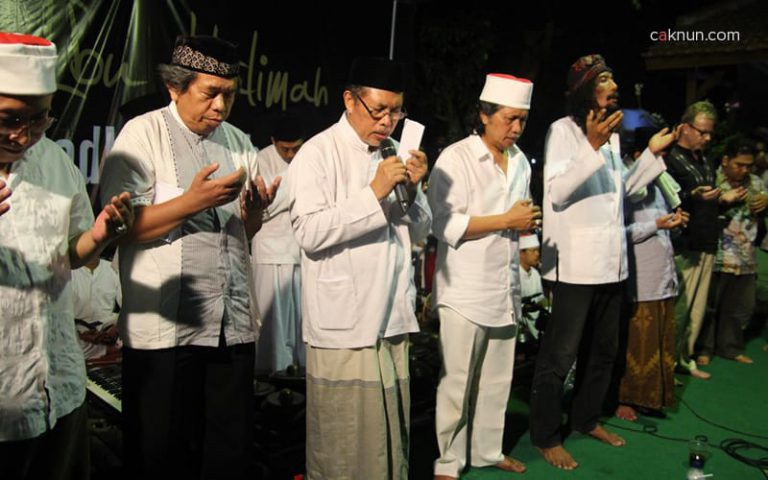
Jammah Padhang mBulan already know these things to be true but there are many communities and peoples who have yet to be “touched” by the Maiyah. Even after more than 3,500 performance-gatherings across Indonesia, the silent path trod by Cak Nun and Kiai Kanjeng is an unfinished one. God Willing, it will continue.
The potential and the role that Cak Nun, Kiai Kanjeng and the Maiyah movement could play overseas remains. A warm response, coloured by the values of the Maiyah, was afforded us by all concerned in the Netherlands just at the crucial time that Geerts Wilders’ film “Fitnah” was being broadcast on the Internet and other channels just a few short years ago. Finland, a country in northern Europe that has struggled to assimilate Muslim immigrants from a number of countries also benefitted greatly from the experience of the tour made by Cak Nun and Kiai Kanjeng there in late-2006.
There is, in my view, no limit to the potential that was born in Padhang mBulan here, twenty years ago tonight. If we were to send a delegation of the Maiyah as representatives to the United Nations, it is possible that a number of difficult and protracted international issues could be resolved. Let us plan together the twenty years that are to come in the sprit of Ibu Halimah… whose passing one year ago we also mark tonight.
May peace by with you.
Ian Leonard Betts
